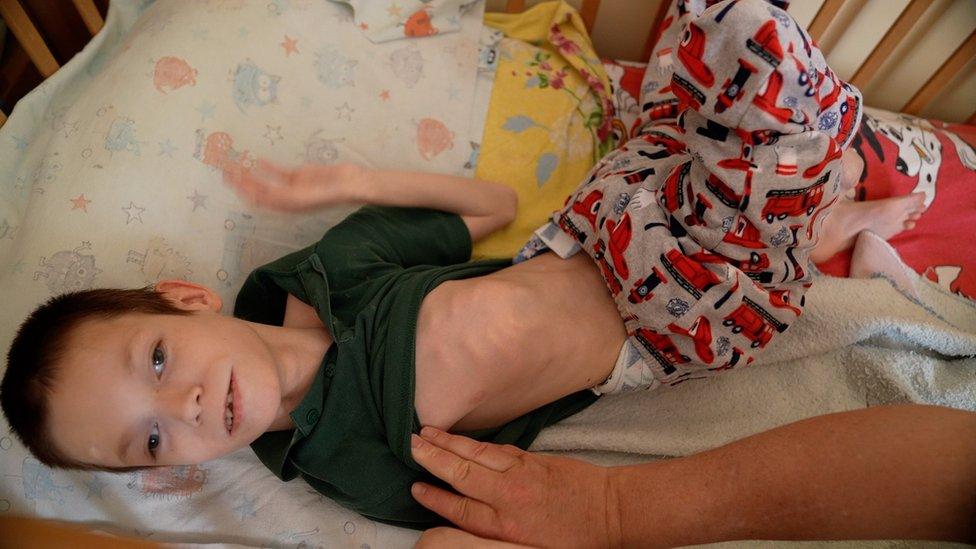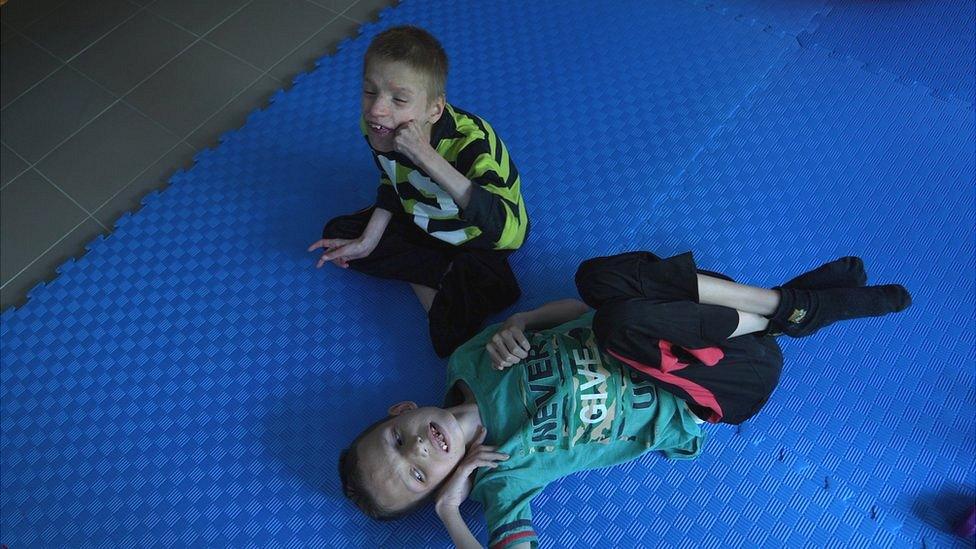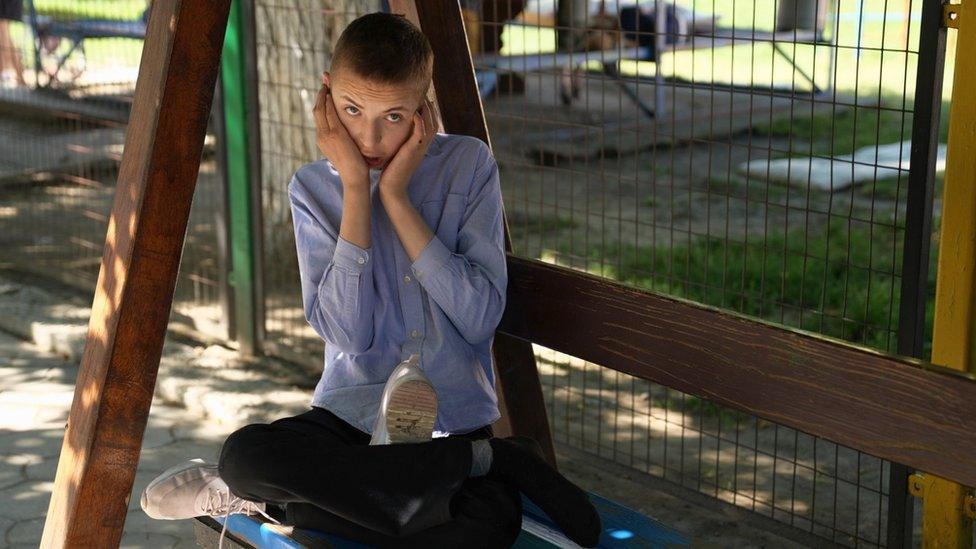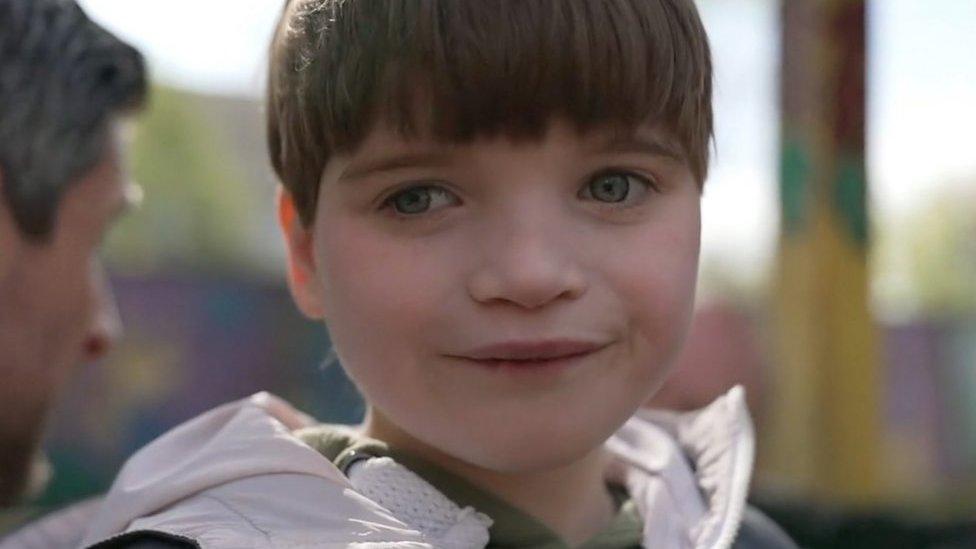UN: Disabled people used as human shields by Russia
- Published

The BBC met this teenager living in a cot in a Ukrainian institution. His protruding ribs show years of malnourishment.
A UN committee has called for the urgent evacuation of disabled people living in institutions in Ukrainian areas under Russian control.
The human rights body said it had received reports of people being used as human shields and being denied access to basic care.
It said at least 12 people had died in one of the facilities in the occupied territories.
The Russian Federation did not give any evidence to the report.
During its press conference, the UN Committee for the Rights of Persons with Disabilities said it was "gravely concerned" about the safety of disabled people in institutions in both Ukraine and the occupied territories.
Its vice-chairman, Jonas Ruskus, said Russian aggression had made what was already a bad situation far worse, with people with learning disabilities and disabled children particularly at risk.
Malnourished children
Mr Ruskus called for the urgent release of the thousands of disabled people living in Ukraine's network of orphanages. The committee's recommendations come after a BBC News investigation exposed widespread abuse of disabled people.
The human rights body is calling for rapid de-institutionalisation, and investment in community services.
We found severely malnourished children neglected and in pain, teenagers tied to benches and adults existing in cots.
The BBC gave evidence at one of the hearings into the experiences of disabled people at a time of war in Ukraine last month.
Olena Zelenska, the First Lady of Ukraine, admitted there should be an "overhaul of the entire system".
She was pressed on the BBC's findings earlier in the week during an interview with Laura Kuenssberg, on her new BBC politics show: "We will have to rebuild the infrastructure. We want kids to stay in foster families and adopted families, in family-type setting. There should be no more orphanages around," she said.
BBC footage reveals abuse of disabled Ukrainians
Soviet-era system
Before the Russian invasion, 100,000 children and young people were housed in this kind of facility, with around half of them having a disability. It was estimated that 250 children a day were entering the system - a network of 700 orphanages.
When war broke out in February, many institutions were evacuated, with thousands fleeing to neighbouring countries.
Mrs Zelenska said she wanted those children to come back to Ukraine and a different way of life, but admitted the whole process of de-institutionalisation would be a "challenging thing".

Victor and Ivan were left in an institution from a young age
Her country has the largest number of children living in institutions in Europe. They are casualties of a Soviet-era system which encouraged parents to give their disabled child up to the state.
There is still a belief in parts of Ukrainian society that an institution is the best place for a person with a disability. The majority of children and young people in orphanages have families, but due to a lack of community support, many end up spending their lives in an institution.
The committee also highlighted concerns about the way funding - from the European Union and other international agencies - is being used to support disabled people during the war. It stressed that money should not be spent on expanding or renovating institutions, but should be used on ensuring people could live independently in their own communities, rather than in residential care.
- Published26 July 2022

- Published4 May 2022
